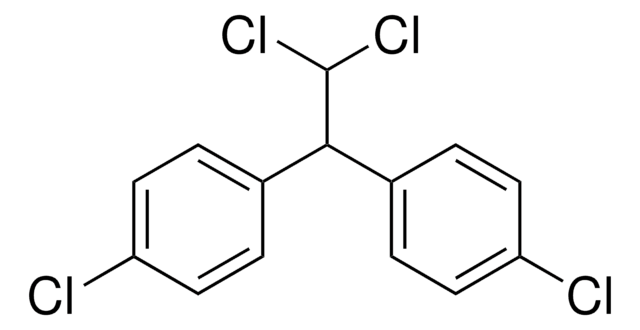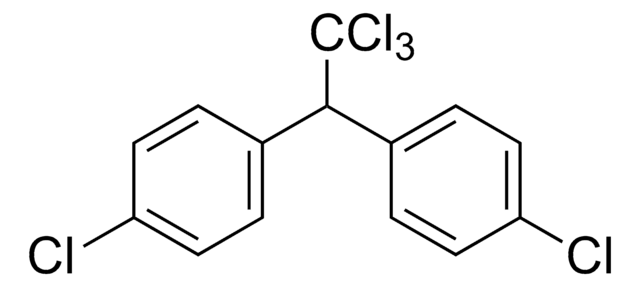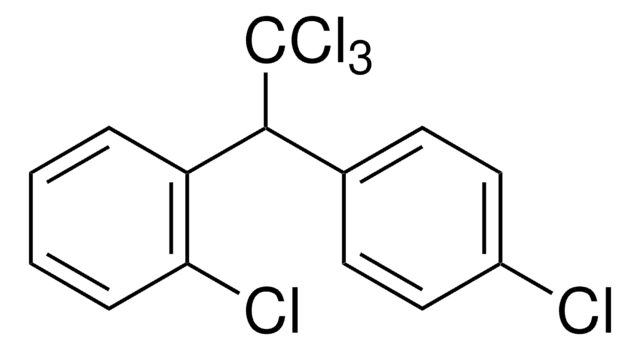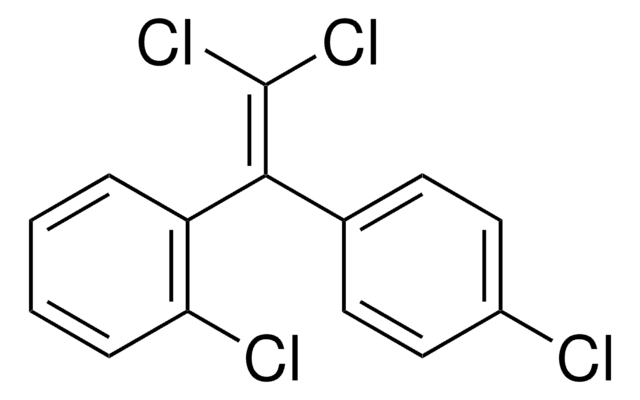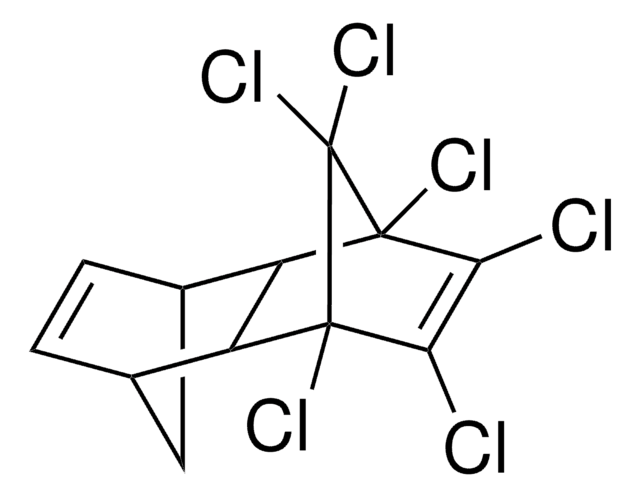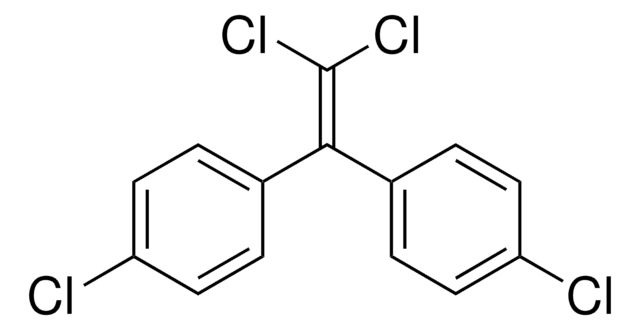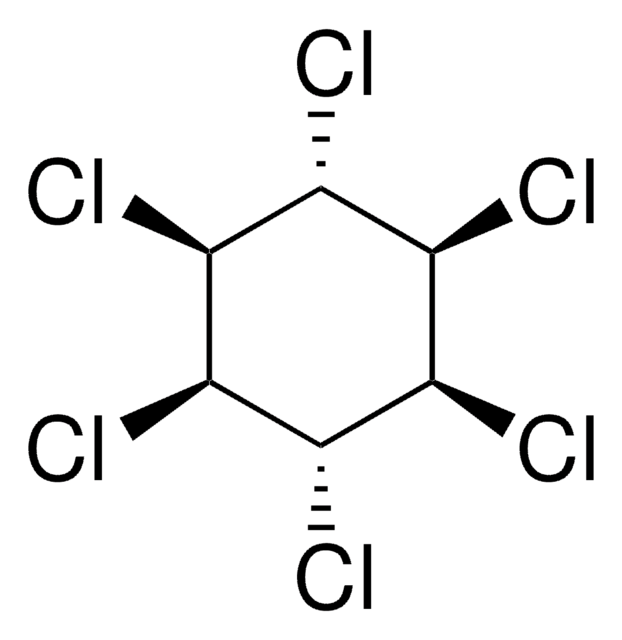35487
4,4′-DDE
PESTANAL®, analytical standard
Synonym(s):
1,1-Dichloro-2,2-bis(4-chlorophenyl)ethene, 4,4′-DDE
About This Item
Recommended Products
grade
analytical standard
Quality Level
product line
PESTANAL®
shelf life
limited shelf life, expiry date on the label
technique(s)
HPLC: suitable
gas chromatography (GC): suitable
mp
88-90 °C (lit.)
application(s)
agriculture
environmental
format
neat
SMILES string
Clc1ccc(cc1)\C(=C(/Cl)Cl)c2ccc(Cl)cc2
InChI
1S/C14H8Cl4/c15-11-5-1-9(2-6-11)13(14(17)18)10-3-7-12(16)8-4-10/h1-8H
InChI key
UCNVFOCBFJOQAL-UHFFFAOYSA-N
Looking for similar products? Visit Product Comparison Guide
General description
Application
Legal Information
Signal Word
Danger
Hazard Statements
Precautionary Statements
Hazard Classifications
Acute Tox. 3 Oral - Aquatic Acute 1 - Aquatic Chronic 1 - Carc. 2 - STOT RE 1 Oral
Storage Class Code
6.1C - Combustible acute toxic Cat.3 / toxic compounds or compounds which causing chronic effects
WGK
WGK 3
Flash Point(F)
Not applicable
Flash Point(C)
Not applicable
Personal Protective Equipment
Regulatory Listings
Regulatory Listings are mainly provided for chemical products. Only limited information can be provided here for non-chemical products. No entry means none of the components are listed. It is the user’s obligation to ensure the safe and legal use of the product.
ISHL Indicated Name
Substances Subject to be Indicated Names
ISHL Notified Names
Substances Subject to be Notified Names
JAN Code
35487-VAR:
35487-BULK:
35487-250MG:
35487-100MG:
35487-1EA:
Choose from one of the most recent versions:
Certificates of Analysis (COA)
Don't see the Right Version?
If you require a particular version, you can look up a specific certificate by the Lot or Batch number.
Already Own This Product?
Find documentation for the products that you have recently purchased in the Document Library.
Articles
GC Analysis of Agricultural Pesticides (Standard) on SLB®-5ms
Protocols
US EPA Method 8081: GC Analysis of Organochlorine Pesticides on Equity®-5
Our team of scientists has experience in all areas of research including Life Science, Material Science, Chemical Synthesis, Chromatography, Analytical and many others.
Contact Technical Service